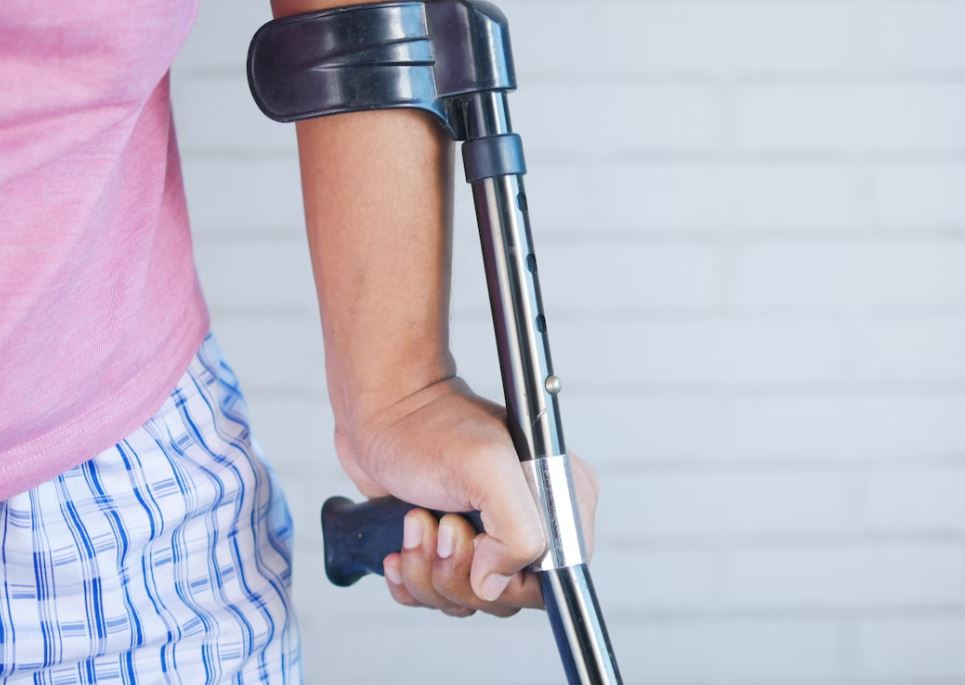Maximizing Your Workers’ Compensation Benefits: Strategies from a Seasoned Lawyer – Guest Post

As legendary college football coach Nick Saban once advised his players: “The process of building a championship team does not start with a trophy presentation. It starts with an attitude, a commitment, and a desire to be the best.” Similarly, maximizing your payout after suffering a workplace injury doesn’t begin with cashing settlement checks, but with mastering procedural strategies upfront alongside determined persistence.
Worker’s compensation benefits are designed to provide financial support to employees who suffer injuries or illnesses on the job. However, understanding the intricacies of this system can be daunting, leaving many injured workers feeling overwhelmed and unsure of where to turn. That’s where our expert comes in. With years of experience navigating the complexities of worker’s compensation law, we bring a wealth of knowledge and insights to the table.
But what happens if your claim is denied? Don’t despair. Our guide will walk you through the steps for appealing denied claims, empowering you to fight for the benefits you deserve. And when it comes time to negotiate a settlement, our experts will arm you with the tools and strategies needed to secure a fair outcome. Let’s get started.
Top Strategic Advice for Maximizing your Workers’ Compensation Payout
Follow these best practices from filing to resolution for your best-case outcome.
Step 1: File Your Claim Immediately
Once injured at work, you should file your claim right away. Here’s why that critical first step matters:
- Benefits cannot legally be paid until the formal claim process begins. Workers’ compensation is an entitlement program, but payouts can’t start until properly filed.
- In most states, injured workers have 30 days from the incident to notify employers and submit the claim. Failure to report in that timeframe can invalidate the entire claim under state statutes.
- While orally informing your manager or HR qualifies as a notice in some states, it’s best to follow up with a written email or letter to create a paper trail. Send to multiple parties – don’t assume the information was conveyed.
- Promptly connect with a reputable workers compensation Lawyer South Carolina to protect your rights and eligibility through this complex bureaucracy.
- Ask your manager or HR department if certain accident report forms must be filed on their end as well. Complete promptly even if optional. More documentation strengthens a claim.
Pro Tip: Report your on-the-job injury to your employer and complete any accident reports the day it happens. Submit your formal claim paperwork to the workers’ comp board immediately as well. This launches the documentation trail you’ll rely on later.
Step 2: Save All Evidence Related to Your Injury
As your claim is investigated by the board and insurance adjuster, strong evidence will prove essential to qualify for the maximum benefits you deserve. Be sure to collect and preserve:
- Complete medical records– document every doctor visit, specialist evaluation, physical therapy prescription, imaging scan, and medication dosage. Keep all diagnostic results demonstrating injury.
- Any accident or incident forms you or workplace reps filed regarding the injury event. Have witnesses sign confirming what transpired.
- Statements from colleagues who can attest to witnessing the incident firsthand. Include contact info should further verification be requested.
- Records demonstrating lost income/wages due to the injury…pay stubs, tax returns, and W-2s all can quantify financial harm. Track specific days unable to work.
Pro Tip: Save copies of all documentation submitted to the workers’ compensation board or insurance company adjusters. Do not assume items sent will remain in your file or be accounted for properly. Maintaining your comprehensive evidence folder is vital to pursue appeals if your claim is initially denied. Key records suddenly unavailable later will detrimentally impact your appeal odds and potential award calculation. Prepare secondary backup copies of everything as protection.
Step 3: Fully Cooperate with Doctors and Investigators
While your claim is pending, it’s imperative to:
- Be punctual and fully participate in all medical appointments, treatments, and evaluations scheduled by the board or your authorized doctor. Missing visits signals your condition isn’t serious.
- Promptly and transparently respond to any inquiries from the claims adjusters and investigators. Hide nothing or delays occur.
- Attend all Independent medical exams (IMEs) as directed by the board. Be truthful about symptoms and impact.
- Closely follow your care regimen and PT plan. Document your cooperation.
Industry data reveals injured workers deemed non-compliant with their prescribed medical treatment plans wind up getting their eventual disability award amounts reduced by over 30% on average compared to fully diligent claimants. Stay actively engaged in managing your injury, care plan, and claim throughout – it directly correlates to the size of the benefits you’ll be entitled to collect according to the law.
Pro Tip: Be early to all appointments, immediately communicate any administrative or medical issues to both your doctor and claim examiner, and thoroughly document every interaction during this process with who said/did what. This creates accountability.
How Workers’ Compensation Benefits Are Calculated
Once approved, your benefits depend on the type and duration of your disability. Common categories include:
1. Temporary Total Disability (TTD) Benefits
- For injuries expected to heal within 12 months
- Equal to 2/3 of gross pre-injury wages
- Covers period until medically stable enough to return to work
- 75% of accepted comp claims involve some TTD benefits
2. Permanent Partial Disability (PPD) Benefits
- If left with permanent impairment/restrictions from injury
- Paid as a lump sum or ongoing income for rating percentage
- The amount depends on the body part/function impacted.
| Loss of Body Parts | Weeks of Compensation |
| Arm at the Shoulder | 500 weeks |
| Leg at the hip joint | 500 weeks |
| Total deafness by accident or sudden trauma | 330 weeks |
| One eye, by enucleation or evisceration | 275 weeks |
3. Death Benefits
- Payable to surviving dependents if work injury results in death
- Includes burial costs and percentage of wages over set time
- To be given to the spouse and dependents
Critical Mistakes That Can Ruin Your Claim
While strong evidence and full cooperation set you up for success, several common errors should be avoided that frequently tank claims:
1. Gaps in Medical Treatment
- Failing to complete a full course of PT or follow-up exams
- Looks like the condition was resolved or wasn’t serious enough
2. Adverse Social Media Posts
- Images or activity showing exaggerated physical abilities
- Indicates injury isn’t as disabling as alleged
3. Omitting Pre-existing Conditions
- Prior injuries/illnesses related to current injury
- If undisclosed but revealed, it constitutes claim fraud
What To Do If Your Claim Gets Denied
Despite your best efforts, there is a chance your claim may get denied. Reasons for denial include late reporting, insufficient evidence of the injury, allegations of fraud, refusing medical treatment, and more. Don’t panic or give up hope though. You have options if this happens:
- Request a copy of your claim file – Review it in detail and identify any gaps or issues. See if additional evidence can resolve concerns.
- Ask the reason for denial in writing – Make sure you have the denial reason(s) documented clearly. Understanding why helps determine the next steps.
- Consult your workers’ comp attorney about appeals – There is an appeals process you can pursue to fight the denial. Strict deadlines apply so move quickly.
- Supply supplemental documentation – If your evidence was weak or incomplete, see if more thorough medical records, witness statements, etc. can support approving your claim upon appeal.
- Consider an independent medical evaluation – A 3rd party exam confirming your injury may override a denial. Your attorney can advise if it is worthwhile to pursue.
- Address pre-existing conditions: If a related prior condition prompted denial, work to demonstrate that the new injury is eligible regardless through medical evidence distinguishing the two.
- Negotiate a lump sum settlement: In some cases, negotiating a one-time lump sum payment to close the claim may be an option instead of pursuing further appeals.
With persistence and prudent legal guidance tailored to the precise reasons behind your specific denial, many initially denied claims ultimately get overturned or lead to settlement. Discuss appeals or other recourse with your dedicated attorney.
Conclusion
Armed with the invaluable strategies shared by our seasoned legal expert, you now possess the tools needed to navigate the complex landscape of workers’ compensation benefits with confidence and clarity. By implementing early notification and documentation practices, seeking guidance from a knowledgeable lawyer, and knowing how to appeal denied claims or negotiate settlements effectively, you can maximize your entitled benefits and secure the financial support you deserve. Remember, your well-being is paramount, and these strategies are designed to empower you to assert your rights and advocate for fair compensation.
As you embark on this journey, rest assured that you are not alone. With the guidance provided, you have a roadmap to follow and a support system to lean on. Together, let’s ensure that injured workers receive the assistance they need to move forward with confidence, knowing that their rights are protected and their voices are heard. Here’s a future where every worker receives the full extent of their entitled benefits, paving the way for a brighter, more secure tomorrow. You have rights – make sure to exercise them.
FAQs: Your Top Workers’ Comp Questions Answered
1. Can I be fired for having a job injury?
Firing injured staff for filing claims is illegal. Report retaliation attempts to your claim examiner or attorney.
2. How soon will I receive my first benefit check?
It can take several weeks for initial payments to arrive. Medical evidence and employment details must be validated first. If over 30 days, follow up.
3. What if my claim gets denied? Can I appeal?
Yes – discuss the appeals process with your workers’ comp attorney to exercise your rights.






